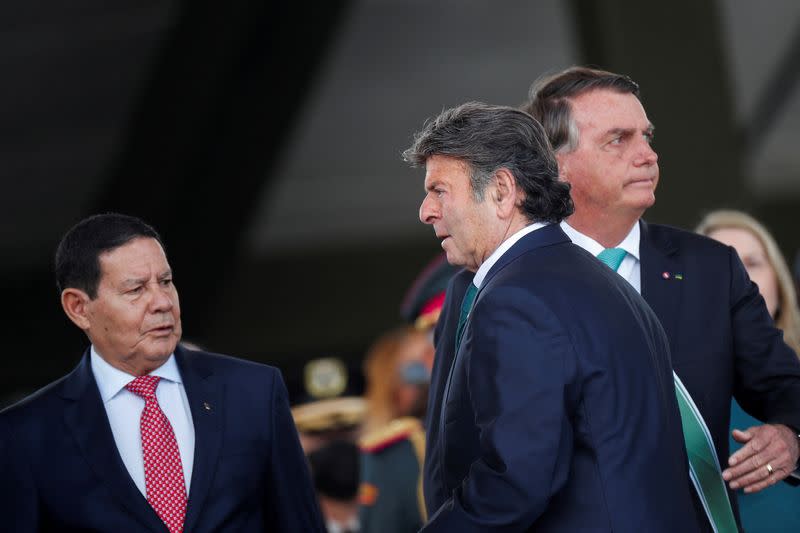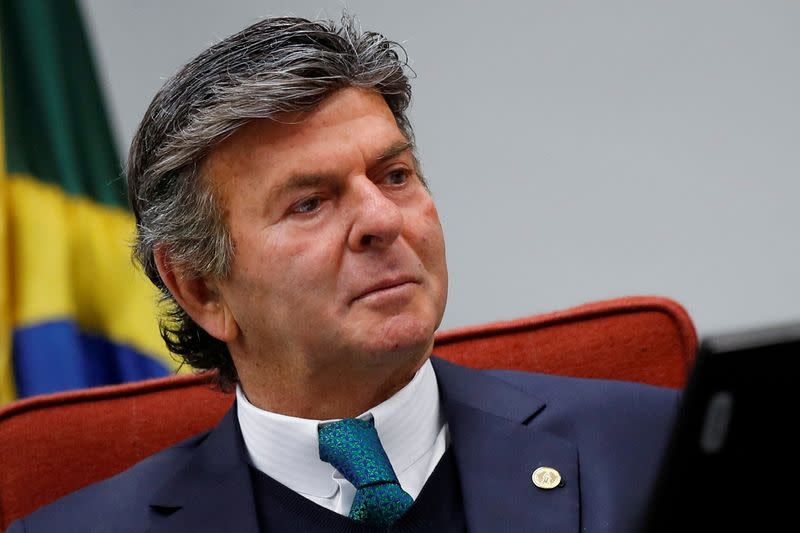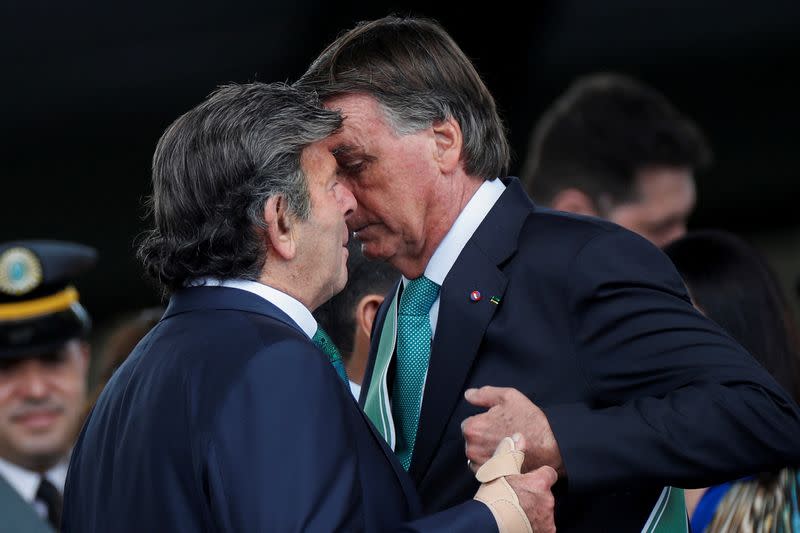Exclusive - Brazil courts step up meetings with military to ease election concerns - sources
By Ricardo Brito and Brad Haynes
BRASILIA (Reuters) - Brazil's top courts are stepping up meetings with military commanders to ease tensions and reaffirm trust in the democratic process, four senior judiciary sources said, as President Jair Bolsonaro stirs doubt about the integrity of this year's elections.
Bolsonaro, a far-right former army captain trailing in opinion polls in the presidential race, has previously made baseless allegations of electoral fraud, attacked the federal electoral court, and floated the idea of not accepting the result of the October vote.
Military leaders have repeatedly said Brazil's armed forces will respect any result of the election, but military officials have also made headlines by echoing Bolsonaro's comments about potential weaknesses in Brazil's voting system.
To ease voter concerns and show wide institutional support for the electoral process, Supreme Court Chief Justice Luiz Fux is planning to meet with military brass, two of the sources said, requesting anonymity to discuss the matter.
Fux plans to formally invite the commanders of the Brazilian army, navy and air force for a meeting next month as part of his public agenda, one source said.
The Supreme Court's press office declined to comment. The Defense Ministry did not respond to questions about preparations for meetings with the Supreme Court.
Fux met last month with Defense Minister Paulo Sergio de Oliveira - an army general in a traditionally civilian role. At the time, the ministry said they discussed the armed forces' role in the electoral process and the court said Oliveira expressed the military's commitment to democracy.
There is otherwise little precedent for meetings between the Supreme Court and active military officers to discuss electoral integrity, underscoring the uncharted waters for a Brazilian democracy in its fourth decade since military rule.
Bolsonaro has based much of his political career on nostalgia for the 1964-1985 dictatorship, disparaging Congress and the courts while packing his government with current and former officers from the armed forces, which he calls "my army."
The Supreme Court, whose justices take turns running the Superior Electoral Court (TSE), Brazil's electoral authority, sees no risk of the military backing a formal coup attempt, the sources said. But some judges have voiced concern that the armed forces are lending their credibility to Bolsonaro's attacks on the electoral process.
The TSE did not respond to a request for comment. The Defense Ministry did not respond when asked about the criticism.
RAMPING UP CRITICISM
Since taking office in 2019, Bolsonaro has often attacked the Supreme Court. He calls some justices political foes, threatening to ignore their rulings and saying they are working to deliver the election to his leftist rival, former President Luiz Inacio Lula da Silva, who leads polls by a wide margin.
As the October election approaches and his popularity wanes, Bolsonaro has ramped up criticism of Brazil's electronic voting urns, saying without evidence they are vulnerable to hacking or manipulation. Congress ignored his demands to switch to paper ballots.
Envoys from U.S. President Joe Biden have warned Bolsonaro's government of concerns about undermining the credibility of the electoral process – including Central Intelligence Agency Director William Burns, Reuters reported in May.
Supreme Court justices leading the TSE electoral court have pushed back publicly on Bolsonaro's criticism, invited a record number of international election observers, and created an electoral transparency commission this year with representatives of several public institutions, including the military.
However, army officials participating in that commission soon flagged an array of what they said were potential issues with the voting system, echoing Bolsonaro's criticisms.
In a public response, the TSE said the military's concerns were based on flawed assumptions and technical misunderstandings – but for weeks the army's criticism of Brazil's voting system dominated local headlines.
Bolsonaro argued the armed forces should be given access to voting data so they can run a separate electoral tally. The results from each voting district are already reported publicly on election night.
This week the Defense Ministry and the federal police, who report to Bolsonaro's justice minister, said they were preparing teams to audit the nation's electronic voting systems, without giving details of what that would entail.
Brazil's federal police and armed forces have long provided security and logistical support for Brazilian elections, but never audited election results.
(Reporting by Ricardo Brito and Brad Haynes, Editing by Rosalba O'Brien)

 Yahoo News
Yahoo News 


